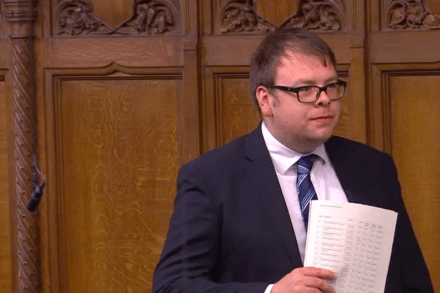Every now and then, the House of Commons sees one of those speeches, a moment when an MP, generally a backbencher, speaks with power and clarity and honesty. Speeches that deserve to be heard far beyond parliament, partly because of what they say and partly because of how it’s said. Speeches that give politics a good name. Often these speeches are from relatively new MPs, people who have not yet established their name or reputation beyond the narrow confines of Westminster. A few years ago, Johnny Mercer, then a new member, made one of those speeches when he spoke about his combat experience in Afghanistan. More recently, Rosie Duffield last




















